How to start a professional organizing business
This page may contain links to Amazon.com or other sites from which I may receive commission on purchases you make after clicking on such links. Read my full Disclosure Policy
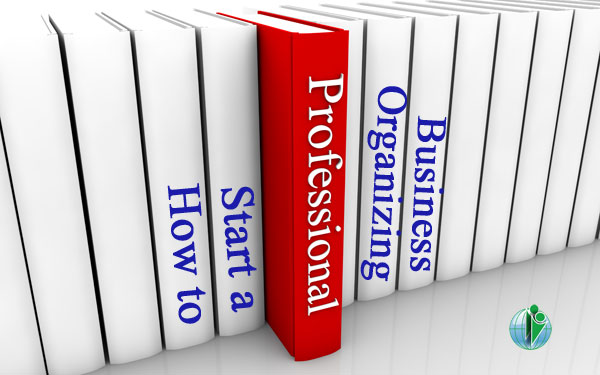
Are you interested in becoming a professional organizer? Maybe you were born to organize and are looking for a way to make money doing what you love. Maybe you’ve read about professional organizers in a magazine or seen them featured on a TV show and thought, “Hey, I could do that!”
However you learned about this relatively new but fast-growing profession, there are a few things you need to know before you hang out your shingle.
First of all, anyone can call herself or himself a professional organizer. You don’t have to have specific training or join a professional association – although both are recommended, and I’ll get into that in more detail in a moment. But please keep this in mind:
You also need skills in:
- Interviewing clients to assess their needs and determine whether you’re a good fit
- Customizing organizing strategies to meet the needs, personalities and budgets of each client
- Sales and marketing to keep your schedule as full as you need it to be to achieve your desired income
- Business management to make decisions that will lead you towards success
- Administrative functions to keep your business running efficiently
Although you can pay others to handle certain aspects of your organizing business, you’ll have to ensure that you can cover that investment and still remain profitable, so until you have sufficient income to justify it, you’ll need at least a basic knowledge of each area.
Getting involved with a professional association is an excellent way to acquire that knowledge, both through formal education and by networking with other organizers. There are several associations for professional organizers around the world, but since most of my readers are located in North America, today I will focus on Professional Organizers in Canada (POC) and the US-based National Association for Professional Organizers (NAPO).
If you’re Canadian, your best starting point is POC’s Should I Become an Organizer? teleclass. This is a one-hour session where you can ask questions and get information from a veteran organizer. Check the POC Education & Events Calendar to find out when it’s being offered and sign up.
I suggest you also attend a chapter meeting, where you’ll have an opportunity to meet with members who have already established an organizing business, as well as others who are considering it, and get a good feel for what it is all about.
Other educational opportunities available through POC include:
- POC Trained Professional Organizer Program (via teleclass)
- Launch Your Business Comprehensive Training Program (two-day in-person live seminar)
- Continuing Education through teleclasses and pre-recorded webinars
- Annual Conference held in the fall
All of the above are open to non-members, but if you’re a Canadian professional organizer, I highly recommend that you join so you can take advantage of the other member benefits.
NAPO also has a strong educational program for professional organizers. Their curriculum consists of live online classes for beginning, intermediate, and advanced organizers, as well as some that are suitable for organizers at any experience level. Some classes are available as pre-recorded webinars.
NAPO holds an Annual Conference & Organizing Expo every spring. Recordings of some conference sessions are also available, but I encourage you to attend if you can, because there’s nothing like the full conference experience.
If you’ve never attended a professional organizer conference and are wondering what to expect, read about April Miller’s first POC Conference and Randi Hutton’s first NAPO Conference.
Conference attendance may be cost-prohibitive if you’re not yet earning an income from your organizing business, but I’ve met many people whose attendance at a POC Conference was their first experience with the industry, and they decided to join before they even got home.
Please note that you don’t need to be a member to attend either POC or NAPO Conferences, but members pay a lower registration fee.
Although NAPO is based in the US and POC is based in Canada, both associations welcome members from anywhere in the world. Whatever association you join, make sure you get involved at the Chapter level as well as locally, as the more you put into it, the more you’ll get out of it. If there’s no chapter in your area, you can participate in the NAPO Virtual Chapter or POC Cyber Chapter, but you’ll also benefit from joining or forming a networking group for local colleagues.
NAPO and POC are both excellent organizations for professional development and networking, but they’re not your only options. Come back next week to learn about international and specialty associations, as well as other sources of professional organizer training.
Image © cla1978 / depositphotos
Join the Community
Did you find this post helpful?
Sign up to get new posts by email every week!




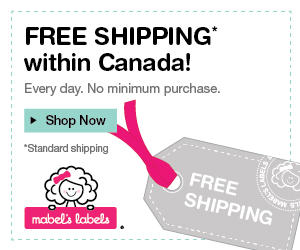

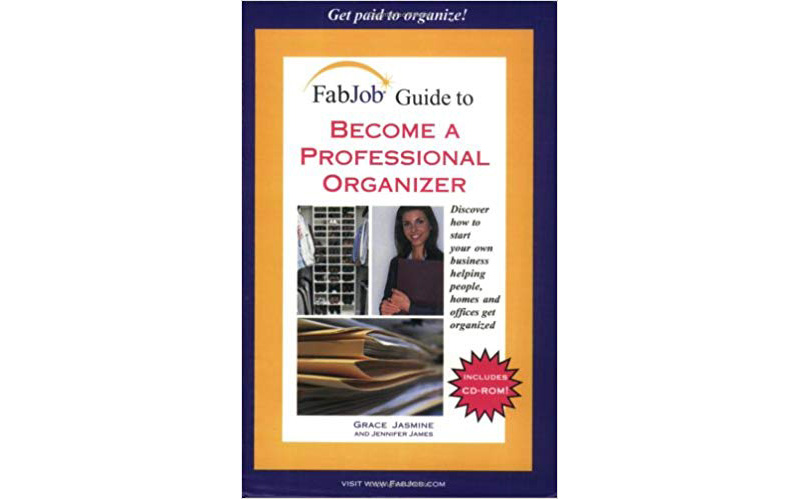
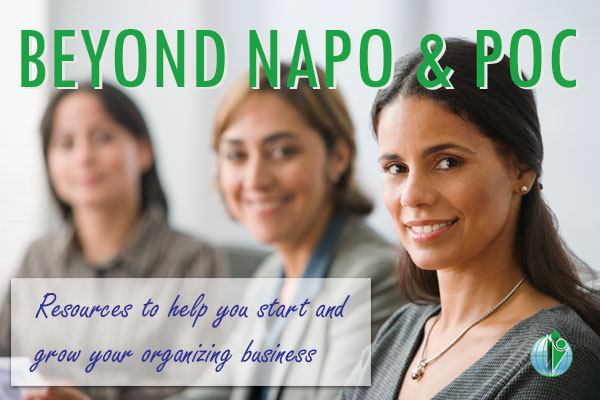
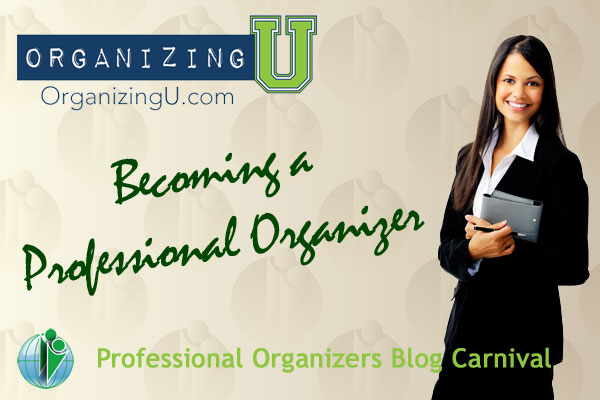

Awesome! So glad you brought it back! 😉 I really appreciate the addition of more info for Canadians as even though I am not in Canada I do get many questions from Canadians about this. Now I will have a wonderful reference to point them to by an actual Canadian! 🙂 Wow I said Canada a lot there… 🙂
Autumn, I’m so glad you raised that question! The original version of this post was written in 2007, and I really enjoyed bringing it up to date and enhancing it with links to some of the guest posts supplied by my readers. I hope many prospective organizers will find it helpful.
Attending my 1st chapter meeting tomorrow night. Very excited to go. Something I should have done right from the start.
Fantastic! I’d love to hear about it! And you know what they say, better late than never! 🙂
Absolutely! I will let you know how it goes.
I’ve had a few inquiries from colleagues on how to start their own organizing business and as an Interior Designer myself- I had no idea! This is a post I will share with them! Great info!
Joanne Palumbo, Allied ASID
Thanks, Joanne – much appreciated!
Thanks for resharing this one on your recap post. I missed it. I have many people come to me over the years and say they want to start an organizing business. Well, I tell them, they need to start now. Wishing will not make it happen. They need a plan and determine what they will offer their clients. I started when there wasn’t anything out there to reference but now a days, there is so much information to get, you can start right away. =) I also loved that you included administrative functions. =) It’s so important to take care of tasks behind the scenes. I just wanted to say, you have taught me so much this year through your blog posts and Facebook group. Thank you so much and I am looking forward to your 2016 blog posts. =) Happy New Year!
I know what you mean, Sabrina! I started around the same time as you, and there were only a few websites about organizing, and only a couple that were geared towards professional organizers.
Thanks so much for your kind words about my work… it means a lot to me. Happy new year!
You raise so many important points. One of the most important pieces of advice I give to aspiring organizers is that actual client work is what we spend the smallest portion of our time on — that marketing is key, plus speaking and writing, administrivia and bookkeeping never end, and that we need those “soft skills” of prospecting, teaching, and soothing quite a bit more than the hard skills of knowing the products and the tech, pattern recognition, and creating systems. I’m so glad you’re directing people to these resources (and so glad the number and types of resources have expanded over the years).
All excellent points, Julie! I touched on that also in my post How Much Time Should I Spend on Marketing?
I am celebrating my 30th year since launching Oh, So Organized! I wish I had received this advice when I started. Things were different three decades ago. There were fewer resources, organizers, and ways to receive an education. There was only a handful of organizing books. Fast forward to now, and there are hundreds, along with many places to become educated about our clients and running a business.
POC and NAPO are excellent sources for education. Perhaps not for the person just starting, but also a wonderful group for learning about chronic disorganization, ADHD, brain differences, and more is ICD – The Institute for Challenging Disorganization. They focus on understanding and learning about the client who struggles with disorganization. The education is excellent. ICD offers many levels of education, from the basics to complete certification.
Also, I can’t say enough about the importance of networking with colleagues and volunteering. I’ve learned so much, made life-long friends, and had opportunities I wouldn’t have had otherwise.
It’s amazing how much things have changed, even since I worked in the field 15-20 years ago. Sometimes I wonder whether I’d still be an organizer if I’d had access to the wealth of resources and educational opportunities that exist today. I’m only a wee bit jealous though, because I LOVE what I’m doing now – and it didn’t even exist when I was starting out!
Getting involved with NAPO was how I got started. I took a few classes online, and then I joined both the national organization and my local chapter. I think they offer so much help for anyone wanting to get started.
I can also recommend US-based “SCORE.” This is a free option to meet with retired business people who offer their time to entrepreneurs. They also run a lot of helpful events. In my area, I feel like there is some webinar or class almost every week!
SCORE sounds like a great program. I also know a few people who have gone through government-sponsored business start-up programs and found them really beneficial.
At our POC Cyber Chapter meeting tonight our newest member is from Romania. It was interesting to hear about the professional organizing industry in Romania. I spoke at the Association of Russian Professional Organizers conference one year. It is wonderful being in the industry and meeting people from all over the world.
Romania, wow – how exciting!
Great post on how to get started. Getting involved and staying connected are important for this business.. and so many other aspects of life!
That’s for sure! It’s so helpful, whether you need advice on a specific issue or just someone to vent to.